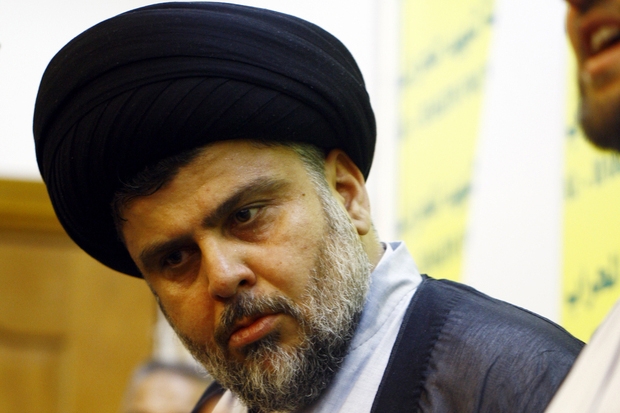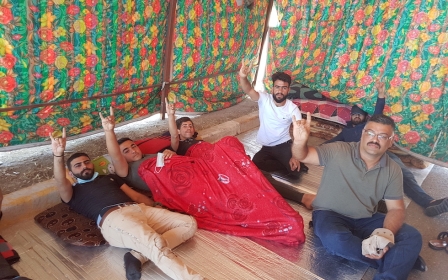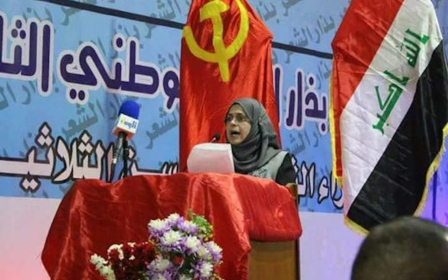Sadr’s bloc wins Iraq election but forming government far off

A political bloc led by populist cleric Moqtada al-Sadr, a long-time adversary of the United States who also opposes Iranian influence in Iraq, has won the country's parliamentary election, the electoral commission said on Saturday.
Sadr himself cannot become prime minister as he did not run in the election, though his bloc's victory puts him in a position to have a strong say in negotiations. His Sairoon electoral list captured 54 parliamentary seats.
The Al-Fatih bloc led by Hadi al-Amiri, who has close ties with Iran and heads an umbrella group of paramilitaries that played a key role in defeating the Islamic State (IS) group, came in second with 47 seats.
The Victory Alliance, headed by incumbent Prime Minister Haider al-Abadi, took third place with 42.
The victory was a surprising change of fortunes. The cleric, who made his name leading two violent uprisings against US occupation troops, was sidelined for years by Iranian-backed rivals.
His bloc's performance represented a rebuke to a political elite that some voters blame for widespread corruption and dysfunctional governance.
Sadr's unlikely alliance with communists and secular Iraqis says it fiercely opposes any foreign interference in Iraq, which is strongly backed by both Tehran and Washington.
It has promised to help the poor and build schools and hospitals in Iraq, which was battered in the war to defeat IS and has suffered from low oil prices.
Before the election, Iran publicly stated it would not allow Sadr’s bloc to govern.
In a tweet shortly after results were announced, Sadr said: "Reform is victorious and corruption is diminishing."
Winning the largest number of seats does not automatically guarantee that Sadr will be able to hand pick a prime minister. The other winning blocs would have to agree on the nomination.
In a 2010 election, Vice President Ayad Allawi’s group won the largest number of seats, albeit with a narrow margin, but he was blocked from becoming premier, which he blamed on Tehran.
The election dealt a blow to Abadi, but he could still emerge as a compromise candidate palatable to all sides because he has skillfully managed the competing interests of the United States and Iran - unwitting allies in the war against IS - during his term in office.
Amiri is regarded as one of the most powerful figures in Iraq. He spent two decades fighting Saddam Hussein from Iran.
Even before Sadr's victory was confirmed, Iran had already been convening meetings to try to block him from forming a government.
Iran dispatched the powerful general Qassem Soleimani to Baghdad, who has met with several members of Iraq's old guard including Abadi and his predecessor Nuri al-Maliki.
According to officials, Soleimani has ruled out any alliance with Sadr, who surprised many last year by visiting Iran's regional foe Saudi Arabia as Riyadh seeks increased involvement in Iraq.
Soleimani's shuttle diplomacy is aimed at gathering enough parties opposed to Sadr to deny his alliance a governable majority and a route to the powerful position of prime minister - though Sadr himself is not in the running for the top job.
Sadr has already ruled out governing with either Maliki or the pro-Tehran head of the Conquest Alliance Hadi al-Amiri.
He called instead for a technocratic government that can begin to tackle Iraq's rampant corruption and the mammoth rebuilding task left from the battle against IS.
The government should be formed within 90 days of the official results.
New MEE newsletter: Jerusalem Dispatch
Sign up to get the latest insights and analysis on Israel-Palestine, alongside Turkey Unpacked and other MEE newsletters
Middle East Eye delivers independent and unrivalled coverage and analysis of the Middle East, North Africa and beyond. To learn more about republishing this content and the associated fees, please fill out this form. More about MEE can be found here.




